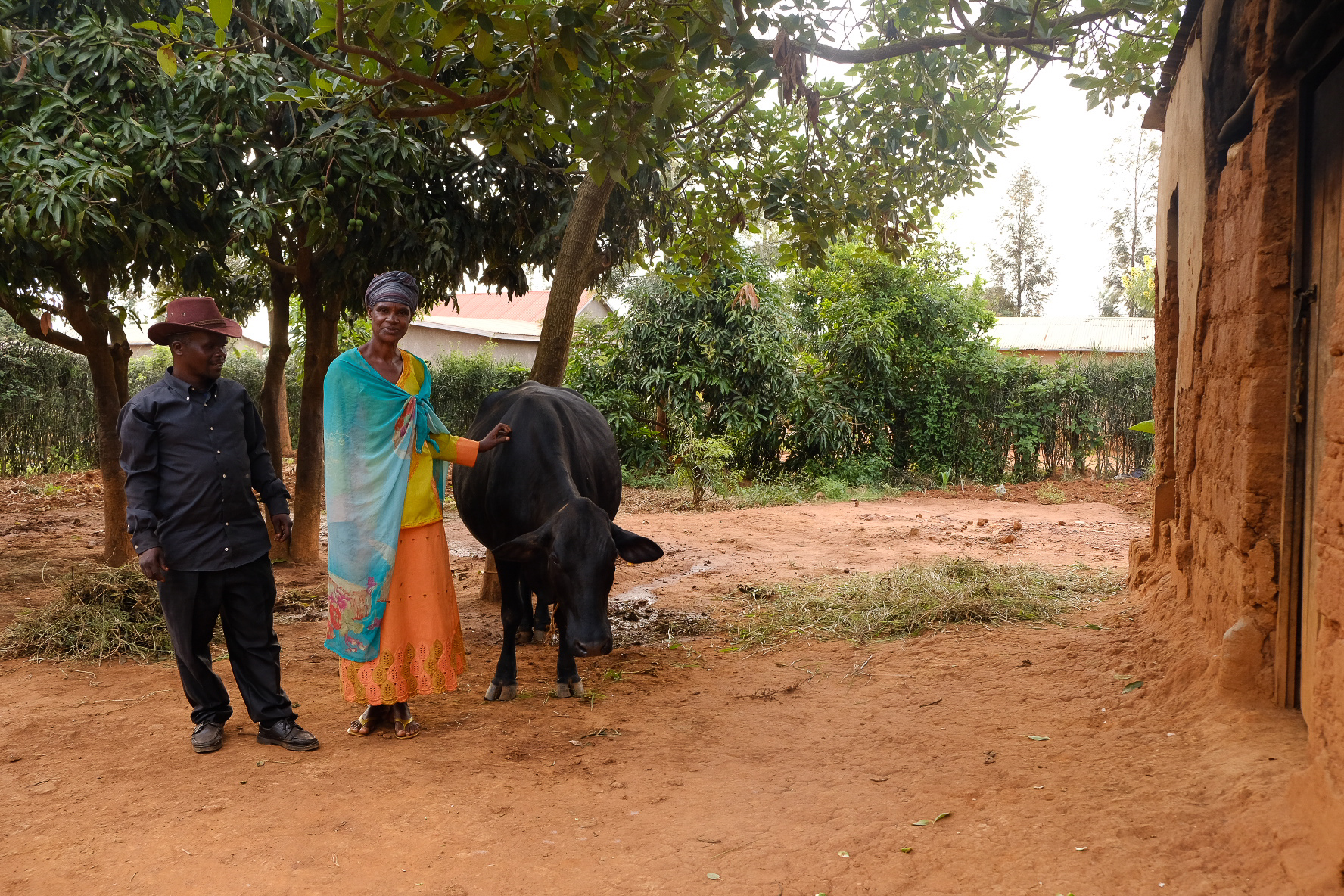RWERU, Rwanda — Maria Izagiriza was returning from farming in a nearby field when she went looking for her neighbor Philbert Ntezerizaza, a man in his 40s who comes by often to help her with odd jobs around the house.
More than neighbors, Maria and Philbert seem to get along. They stop and chat whenever they pass each other in the village. He was even invited to her daughter’s wedding. It would be hard to guess that 25 years ago, Philbert was responsible for the killing of Maria’s husband and three of her children.
Videos by VICE

On April 6, 1994, Maria was at home with her 2-month-old daughter, Florence, when her neighbors told her that Hutu president Juvenal Habiyarmana had died after his plane was shot down, and that extremists were galvanizing the majority ethnic Hutus all over the countryside to start killing Tutsis.
“They unfortunately encountered us as we were at patrol on roadblock, equipped with various traditional arms,” Philbert told VICE News. “It was mainly machetes. The children were thrown in a pit alive. Adults were chopped and children thrown.”
“We would consider every Tutsi, with no exceptions for women or children. It was all about massacring,” Philbert added.
Between 800,000 and 1 million minority Tutsis were slaughtered indiscriminately before the killing abated.
Today, Rweru is one of eight so-called reconciliation villages throughout Rwanda where former killers and victims of the genocide live side by side. It is one facet of the national rebuilding here, created to encourage peace in the wake of genocide.
Thousands have moved into these villages since 2003, and the program is run with support from the government and NGOs. Villages like Rweru have incorporated subsidized housing and livestock, group psychosocial therapy sessions, and religious and spiritual resilience programs into an attractive package that encourages released genocide perpetrators to seek forgiveness and for their victims to forgive.
“After getting released from jail, I would feel guilty that I committed crimes against Maria, and I would feel fearful and shameful of myself,” Philbert told VICE News. “I asked her to forgive me. She forgave me and I felt relief in my heart.”

Maria credits divine intervention for her own and her remaining daughter’s survival. And that fits with the religious component at the center of many of these programs.
“When one’s heart is burdened, you don’t see anything good at all. But when you forgive from your heart, you see many good things coming your way. And forgiveness is an important thing, as it makes your heart relieved and you gain new ideas of self-development, and life continues as normal.”

This segment originally aired April 9, 2019, on VICE News Tonight on HBO.
Cover image: Maria Izagiriza and Philbert Ntezerizaza walk together in the Rweru reconciliation village. (Madeleine Peters/VICE News)
